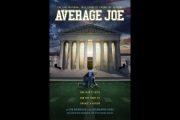
Bereft of the clichéd working-class heroes popularized by the likes of Steinbeck, Atlas Shrugged is a sort of anti-Grapes of Wrath, and its protagonist, corporate titan Dagny Taggart, the very antithesis of the downtrodden Tom Joads so beloved of fashionably leftist literati. Taggart, along with other ur-capitalists featured in the novel, is driven, intelligent, and courageous, committed to expanding her business (in this case, a transcontinental railroad corporation) against any odds.
The novel has overtones of science fiction: the world of Atlas Shrugged is a sort of parallel universe where the American Congress and President have been replaced with a National Legislature and Head of State, and the People’s State of England is substituted for Great Britain. The industrial setting is curiously anachronistic, with factories organized along late-19th century lines in a world whose technology is reminiscent of the early 1950s.
Atlas Shrugged is the story of one man’s successful campaign to shut down society’s engines of productivity by persuading the most productive innovators to withdraw their services. What begins as the story of Dagny Taggart’s industrial (and, eventually, romantic) alliance with metal manufacturer Henry Rearden and their struggle against the productive class’ fiercest competitor — government — gradually turns into something of a mystery as America’s most productive industrialists, entrepreneurs, thinkers, and artists vanish without a trace, leaving behind their enterprises with no explanation. Henry Rearden himself finally disappears as the federal government, increasingly bereft of America’s wealthiest and most productive to parasitize, casts about frantically to find them.
As Dagny finally discovers, they are all living happy and productive lives in a well-hidden vale in the Colorado Rockies, free for the first time in their lives from the encroachments of their inferiors. Their leader is the mysterious John Galt, who is determined to effect a revolution against an unreasoning, predatory society that has done its best to strip them of their talents and assets.
Beyond any dispute, Atlas Shrugged is a fine repudiation of the tawdry leveling impulse responsible for class envy and collectivism, which demagogues have exploited since time immemorial. The novel is a paean to risk-taking, achievement, and individual liberty, and its conclusion affords optimism that mankind may someday grow out of its long love affair with central planning. If Rand’s fable seems preachy, well, it was intended to be. After all, although we are told incessantly that preachiness is a fatal defect in any story, no one has managed to explain precisely why this should be the case. The greatest stories ever told, from the Bible to the epics of classical antiquity to the plays of Shakespeare, all have pointed moral, political, or theological messages. Why should a modern epic like Atlas Shrugged be any different?
But what, exactly, is Rand preaching? A religious work Atlas Shrugged certainly is not; the atheist Rand saw religion (and all forms of “mysticism”) as irrational and partly responsible for false codes of morality and virtue that denigrate the individual and falsely enshrine altruism. In John Galt’s chapter-long radio sermon to America, where Rand’s philosophy (so-called objectivism) is laid out, religion is portrayed as no different than secular collectivism:
For centuries, the battle of morality was fought between those who claimed that your life belongs to God and those who claimed that it belongs to your neighbors — between those who preached that the good is self-sacrifice for the sake of ghosts in heaven and those who preached that the good is self-sacrifice for the sake of incompetents on earth. And no one came to say that your life belongs to you and that the good is to live it.
Both sides agreed that morality demands the surrender of your self-interest and of your mind, that the moral and the practical are opposites, that morality is not the province of reason, but the province of faith and force. Both sides agreed that no rational morality is possible, that there is no right or wrong in reason — that is reason, there’s no reason to be moral…. Sweep aside those hatred-eaten mystics, who pose as friends of humanity and preach that the highest virtue man can practice is to hold his own life as of no value.
The whole of John Galt’s screed — and, by extension, of Rand’s objectivist philosophy — is a diatribe against “mystics” both spiritual and secular, whose avowed aim is tyranny over the human spirit:
Every dictator is a mystic, and every mystic is a potential dictator. A mystic craves obedience from men, not their agreement. He wants them to surrender their consciousness to his assertions, his edicts, his wishes, his whims — as his consciousness is surrendered to theirs. He wants to deal with men by means of faith and force — he finds no satisfaction in their consent if he must earn it by means of facts and reason…. His lust is to command, not to convince…. What he seeks is power over reality and over men’s means of perceiving it.
To the avowedly false creeds of the mystics, the only possible antidote is reason. To their false morality of altruism, only the counter-morality of self-interest can stand. Rand would have her readers believe that the individual is absolute and sovereign, and that every species of self-denial is both irrational and immoral. Reason, in point of fact, is the only valid font of morality, and reason enjoins self-preservation and self-fulfillment above all else.
These are the adolescent cadences of dorm-room philosophy, dressed up in lofty, quasi-Aristotelian rhetoric. But Rand is no Aristotle. Her philosophy is laissez-faire nominalism of the coarsest variety, a simplistic, elitist dogma that conveniently dismisses most of human experience as irrational and destructive. For starters, individuals — pace Rand — are not absolute. We are not inherently self-aware, as any early childhood specialist can attest, but derive awareness of self from contact with others (this is the reason that children learn the first person pronoun “I” much later than the third person, for example). Rather than being a pageant of unalloyed individual initiative, life is actually a delicate interplay of personal and social factors.
Rand’s anti-religion billingsgate is neither original nor accurate. There have been and continue to be religious fanatics and spiritual dictators, to be sure. But religion is the wellspring of the very creativity that Rand extols, from the architectural innovations of Gothic cathedrals to the music of Bach. And to insist that religion is hostile to reason is a reductionist caricature, beloved of atheists in every age but not borne out by the vast body of thought, from the ponderings of the schoolmen to the cosmology of LeMaître, conceived in a religious context. Rand’s blanket indictment of God and religion is the product of unreasoned enmity, not apodictic inquiry.
The phenomenon that no juvenile individualism such as objectivism can accommodate is family. Those who insist, as Rand does, that self-seeking is the only rational form of human behavior and that self-sacrifice is altogether contemptible, have no grasp of so-called family values. It is no accident that Rand and her epigones also advocated sexual license, and that the protagonists in both Atlas Shrugged and in The Fountainhead, Rand’s other major novel, are sexually “liberated.” Both novels contain an act of “consensual rape” (if there could possibly be such a thing) between main characters as a device to cement their relationship, and Rand herself was notorious for her illicit affairs. Yet the self-sacrificing family-centered value systems that Rand repudiates enjoin us to forego sexual license and to cleave unto a single spouse, despite occasional temptations to do otherwise.
And family values extend far beyond the monogamy that Rand rejected. They embrace the sacrifice of parents who forego self-gratification for the sake of rearing and educating their children properly, and who submit to comparative poverty and debt instead of the limitless possibilities for career advancement and earnings that carefree bachelorhood often confers. Rand’s characters are not family men and women, and appear to know nothing of the struggles of the millions of ordinary but decent people who put family ahead of career.
But even if none of this were true, Rand takes a quaintly naïve view of the alleged saintliness of successful capitalists. This is perhaps excusable, given her upbringing in Soviet Russia, but it is no less a serious defect of her work for that. Contrary to received mythology, most of America’s wealthiest and most successful lose their appetite for the free market by the time they reach the top. Most of our top industrialists, conscious of their vulnerability to potential competitors, become willing accomplices of the state in order to preserve their gains. It is, after all, the largest and best-connected firms that can afford legions of lobbyists, lawyers, and compliance officers to keep abreast of the latest regulations. They are rewarded with lucrative government contracts and grants of public monies for research and development. Their objective is not only to make money (no sin in itself, as Rand reminds us), but also to keep it by any means possible — and that usually includes enlisting the aid of organized coercion that government can provide. Whole swathes of the American economy, from railroads and aerospace to banking, real estate and healthcare, are de facto public-private partnerships that protect and reward the well-connected at the expense of everyone else – and few corporate magnates find this at all objectionable.
In sum, despite its panglossian portrayal of life at the top, there is much to enjoy in Atlas Shrugged. But, as with so much creative output in our secular age, the work is marred by its hostility to so many of the very axioms — like Christian virtue and enlightened self-denial — that gave rise in the first place to Western Civilization, with its commitment, however uneven, to individual liberty.
Addendum from the author (4/23/11):
I’m flattered by the volume of responses to my review of Atlas Shrugged. May I offer a few clarifications in defense of what I have written and of my own background (or “biases,” if you prefer). First, I have read both Atlas Shrugged and The Fountainhead cover to cover. I enjoyed them then as now, but they are not without their flaws. I do not see any basis, rational or otherwise, for Rand’s atheism. Her equating of altruism in the name of religion with secular collectivism is a shallow parallel. To be sure, religious authority is as susceptible to abuse as secular, but that does not signify that the religious impulse is analogous to the impulse to seek order through organized coercion.
As for individualism, it’s important, when contemplating “the individual,” not to confuse a heuristic model with reality. And the reality is, if language and human behavior are any indication, that the individual child, in the very early stages of conscious development, frames a hypothesis of “self” as a repository where experiences of the “other” can inhere. In other words, a child is aware of the “other” before he is aware of “self,” such that the latter is, in some sense, a derivative concept. There is no basis for believing that any of us are inherently or intuitively “self-aware,” and every reason to suppose that we are “other-aware” well before the self is conceptualized. This point has been observed by many of the best minds in linguistics, like Roman Jakobson and his fellows of the Prague School, and by Charles Sanders Peirce (see, for example, Peirce’s famous “cognition series,” and in particular, his essay “Questions Concerning Certain Faculties claimed for Man,” in which he addresses issues like intuition and self-awareness). I also use the term “nominalism” in the Peircian sense; see his review of Fraser’s compilation of the works of Berkeley. Overall, I strongly recommend a perusal of the writings of Charles Sanders Peirce, the “American Aristotle” and probably the finest mind ever produced on American soil, for those of you who aim to lead well-examined lives; his was an intellect and an insight that surpassed even the likes of Kant. If I have any bias, it is for the Peircian architectonic.
Again, Western culture and the civilization that grew out of it were products of Christianity marinated in the cultural assumptions of the peoples who populated the West after the fall of the Western Roman Empire. Our art, science, law, and (eventually) political assumptions, including the reverence for individual liberty that we all share, grew out of Western man’s yearning for the infinite (as embodied in the so-called “Faustian” prime symbol of Western culture, infinite space; see Spengler). That symbolism, which civilization has degraded from art into craft, was embodied first in soaring Gothic arches, the fugues of Baroque composers, and the mathematics of the infinite and the infinitessimal, among many other things. The soaring modern skyscrapers of which Fountain Head protagonist Howard Roark is so fond are but modern, secularized instantiations of the same Western impulse towards the infinite, which in its cultural infancy was coextensive with the divine. So Western culture — like all cultures — originated with a religious worldview, but has since become ossified and degraded almost beyond all recognition as such.
Finally, for those of you who objected to my comments on sexuality and “consensual rape,” the scene in The Fountainhead where Howard Roark bursts in on Dominique Francon and “takes her” with a rather violent struggle is a rape scene, pure and simple. John Galt’s sexual encounter with Dagny Taggart in the subway tunnel is perhaps not quite so jarring, but it certainly doesn’t read like an episode of consensual sex. All things considered (and I did consider carefully my terminology), “consensual rape” is certainly oxymoronic, but — particularly with the first scene above-mentioned — an understatement. And regarding Rand’s personal conduct, a consensual affair is still an affair.
Again, thanks for all the comments, both pro and con. As a professional academic, I welcome both discussion and dissent.
Related article:



